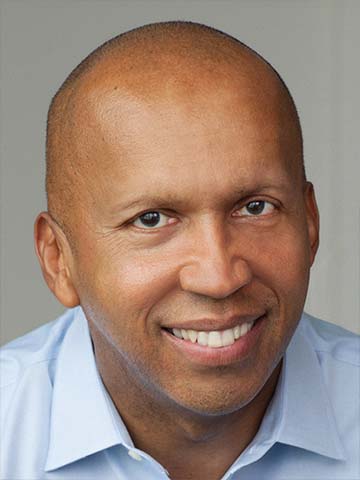Bryan Stevenson, a highly acclaimed activist and lawyer, has dedicated his career to helping the poor, the incarcerated and the condemned through his leadership of the Equal Justice Initiative. he has successfully argued several cases in front of the U.S. Supreme Court, and his TED Talk has more than three million views. The best-selling author of Just Mercy, Stevenson was named to Fortune’s “2016 World’s Greatest Leaders” list.
- America is the country with the highest rate of incarceration in the world
- Women going to prison has increased by 646% in the last 20 years
- 1-in-3 black children will spend time in jail
#1 To change the world you have to get close to the people we are trying change
- We have to get close to the problem
- You can’t lead from a distance
- It is within that proximity where you figure problems out
- Leadership requires that the people we are leading feel like we are with them
- Who is responsible for poverty and tragedy? We are because we have removed ourselves from the proximity of the problems.
- We can’t solve problems from a distance and the solutions don’t come until we get close to the problem
#2 We have to change the narratives that sustain the policies
- The great evil of American Slavery was not slavery, it was the narrative of racial inequality
- True narrative change can lead to freedom
- We have to understand the narratives that sustain the problems that we see
#3 We can’t be effective unless we stay hopeful
- Hopelessness is the enemy of justice and leadership
- Hope gets you to stand up with other people say sit down
- You’re either hopeful or you’re a part of the problem
- You’re either a hopeful leader or you’re not leading
- Stop talking about the things you have done and start talking about the things you’re going to do
- It takes courage to stay hopeful in the face of daunting situations
#4 Be willing to do uncomfortable things
- As humans we are biologically, mentally, and sociologically conditioned to be comfortable
- Effective leadership only happens when great leaders are willing to do uncomfortable things
- Sometimes you have to position yourself in uncomfortable situations to do significant things
- Why do we want to kill all the broken people?
- It is in brokenness that we really learn what it means to lead because in brokenness we begin to understand grace
- Each of us is better than the worse thing we’ve ever done
- The opposite of poverty is not wealth, it is justice
- Our character as a leader cannot be measured by how we treat the rich and the powerful but how we treat the poor and neglected
- Grades, income, position, etc. are not a measure of your capacity to lead


Leave a Reply